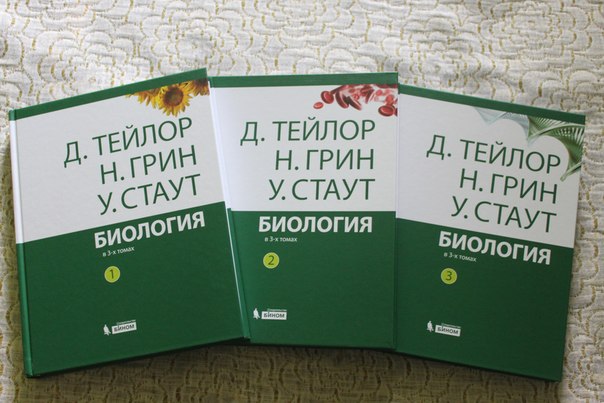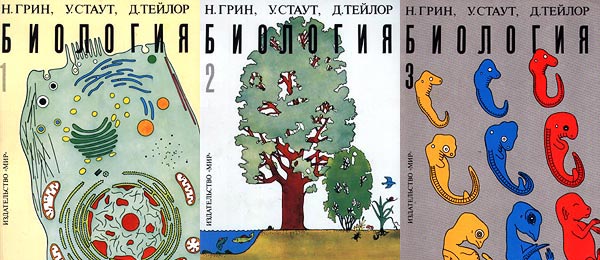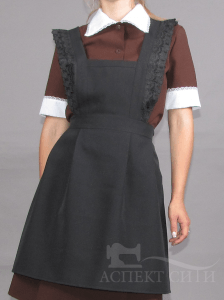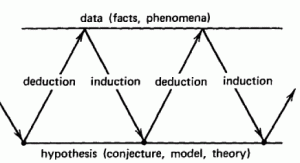From Russia with Love… for Science
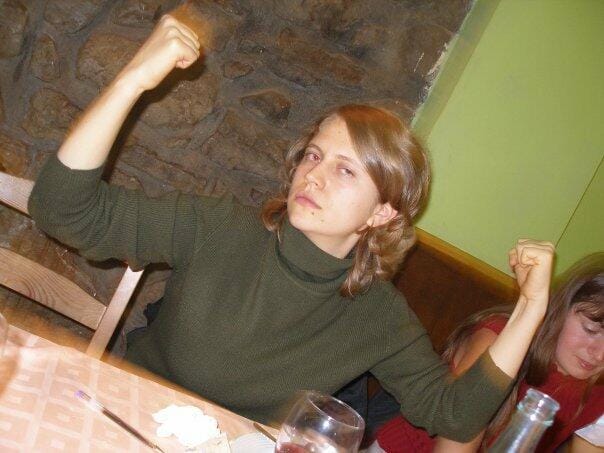
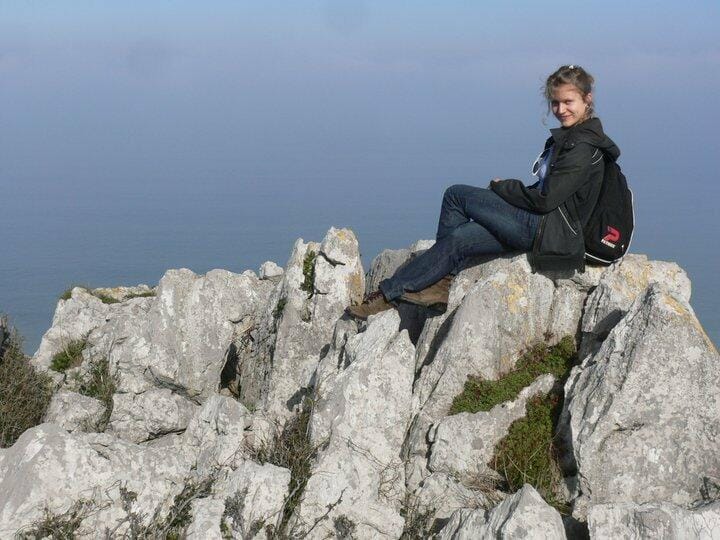 Labcritics presents a lengthy interview with Elizaveta Katorcha, a Russian scientist working in the US. The structural biologist and X-ray spectroscopist talks about her love for biology since she was a child, her interest for systems and logic, soviet-style education, her hunger for knowledge, her role models and much more. Read the wise words of this Muscovite.
Labcritics presents a lengthy interview with Elizaveta Katorcha, a Russian scientist working in the US. The structural biologist and X-ray spectroscopist talks about her love for biology since she was a child, her interest for systems and logic, soviet-style education, her hunger for knowledge, her role models and much more. Read the wise words of this Muscovite.
When did you first become interested in science?
At some stage, I started looking at books that my uncle had on his shelf. He was at university studying medicine. They were mostly books on anatomy with pictures. Although I was not a type of child who tore apart small animals in order to satisfy scientific interest for what’s inside – nevertheless, anatomy fascinated me. Especially, pictures in the book, which were schematic diagrams – the explanations were so much more interesting than the real things that were explained.
I’d say, if you want your kid to be interested in science – make sure that they have at home a lot of books with pictures. It’s hard to read small letters and strange words when one is six or seven – but one can always look at pictures and torture the adults “What’s this? What’s that? Why?”
Especially I want to stress the importance of book covers. Look at the covers of the Taylor, Green & Stout biology textbook – the one my uncle had on his shelf. That’s how it looks now:
..and that’s how it was when I first saw it:
To me, the second one looks so much more fascinating. Make sure your kids see books that call to be opened.
I also had geography books for kids – I almost learned them by heart. I had a small microscope capable of discerning mosquito heads. But that was “kid stuff”.
How was your science education at school?
My first school was not very fascinating. On the contrary – it was a bit fearsome to study there. It had a completely Soviet-style modus operandi: you’d be punished for even minor misbehavior by being harshly told off or even your parents would be called. There was a strict hierarchy, and the teachers would not hesitate to raise their voice or even shout at us. You had to wear a sad-looking uniform:
…and were prohibited from any use of jewelry, heels, cosmetics… I got good notes mostly – but even though I was still a bit afraid of school. Mostly I was afraid of math – the school actually was specialized in math; many alumni went to the best universities to study physics, math, and other technical sciences. I remember always being afraid to be called “to the blackboard” – that is, you’re given a chalk and a hard math problem and you have to solve it in due time with everyone watching. Not capable – get your zero. Three zeroes would send your parents talking to the math teacher about your future prospects.
I liked geography – on the whole the matter seemed interesting: why the winds blow like that or the sea currents… why there’s a desert near the ocean… what’s the climate on Fiji… how to orient yourself with stars. Logic and explanations of the world phenomena.
The other thing that seemed okay was biology. It was botany at that time and it gave me some system that I liked – I remember enjoying classifications of the plant families by their shape of leaves and number of petals. The microscope work was also interesting, but my favorite was definitely creating systems. I had all characteristics of plant families in neat tables and was proud to share them with my classmates.
I was suffering without knowing any better at that school until I was 13. Afterwards, my parents decided it was tiresome to take me there every day and also they heard about a new lyceum near our house. In the lyceum, you had to learn Latin and French.
Latin was my love at first sight. It’s a very logical language, a system. I love systems, and I loved Latin. We had a teacher who worked in classical philology at a university, very passionate about the subject. I went on to win a small competition in Latin and was close to attach my life to philology.
For French, we had two groups: the ones that knew some French and the ones that did not. I got a place in the latter. Nevertheless, I decided that I did not like that – in fact, I decided I would learn French myself. I asked my Mum to help choose a book – and I got an audio course with two cassettes. All that summer – every morning – I would sit down on the veranda and start learning French. My grandmother was astonished with my persistence but let me use this time before sending me to weed her carrots and strawberries. After that summer, I got into the group that I wanted. More importantly, it became clear to me that one could learn everything if they wanted to.
After that, it was no problem for me to learn German and Spanish myself. I’ve never done any special language course – only a preparation for the Cambridge English Exam.
I liked chemistry from the beginning. Especially the metamorphosis of compounds that – oh yes – could be explained logically. I liked composing chemical equations and counting the electron transfers. Afterwards, during my thesis years, I chose my computer to be called “Pauling” in the local network – for the enjoyment that Linus Pauling’s theory of electron orbitals gave to my chemistry classes.
How do you remember the years at university?
Studying at university was definitely easier for me than at school. First, one could plan their work themselves, there was no one controlling your every step. Second, there was enough work to do, enough – and even more than enough – new things to learn. A whole new world opened to me. And the third point was the professors at my university: a lot of them were remarkable people, curious and open-minded, with a fine sense of humor, excellent role models.
Speaking of the social part, I’ve always been a bit of a lonely wolf, not very fond of joining noisy companies. I did not make a lot of friends at the university, but the few I made will be so for a long time.
During those years, my parents supported me, so I did not have to worry about money (although I did try to earn “my own” money from time to time).
There were a lot of real nerds around – I liked that. Most nerds belonged to the Botany, Zoology and Physiology departments. I remember people having their own huge spiders as pets or heading out into the fields in order to catch an unpronounceable fish or insect.
How does the Russian character influence science practice?
I think we Russians like to imagine ourselves very serious. It’s of paramount importance to be “serious”: “he’s a serious engineer/doctor”, “she’s seriously into linguistics”. Our education system was mostly influenced by Germans; in fact, Russian tsars invited Germans (and also Swiss and Dutch) to come live in the Russian Empire and help out with engineering, science and education. They were given land and/or generous gifts for that. Famous mathematician Leonhard Euler was one of many examples.
Hence our traits are scrupulousness and discipline – those are German traits.
On the other hand, Russians tend to have a certain breadth of vision – we like generalizing. And, of course, we love systems and theories; everyone will tell you their theory (or at least a classification) of something. And we adore discussing those. It’s not uncommon to see people sipping tea (black tea, lots of sugar – so that you don’t fall asleep and follow the argument) discussing graph theory or politics until they’ve eaten all the cookies in the house. I was listening to those discussions from childhood and I miss them now that I live abroad.
There’s a big tradition for theoretical physics and mathematics in my country. From childhood we know and adore people like L. Landau (Nobel laureate, theoretical physics), P. Kapitsa (Nobel laureate, physics) and also famous scientists from abroad – N. Bohr, A. Einstein etc.
On the other hand, famous scientists not only did science per se – they created their schools and gave examples of lifestyle. They all had their social lives – many wrote poetry, most had a sharp tongue and were not afraid to say something the Soviet system was not fond of hearing. This concept of a scientist as a Renaissance man, a man of encyclopedic knowledge and a poet, but also acquainted with the problems of the modern world is still with me, this was what I look up to. “A narrow specialist is like an abscess” – they say in my country. Two of such internationally known well-educated men that I follow these days are Umberto Eco and Noam Chomsky.
Why did you leave Russia?
I decided to continue working in science – but that was not economically comfortable in Russia. PhD students are not paid enough to rent their own room, and I did not want to live with my parents.
Moreover, I wanted to see the world and how people live and work out there. The borders were open for more than ten years by that moment, and a lot of people had already gone abroad to explore, one could read their experiences. It was a fascinating time for my country. I was caught in that pool; the idea of going to study/work abroad was discussed a lot at the University, and everywhere.
So, the idea seemed a win-win.
You moved to Spain to start a PhD. What differences did you find between doing science in Russia and in Spain?
In Russia and Spain there’s a different tradition for doing science.
First, Russia as a part of Soviet Union has been an atheist country for a century (they’re now trying to reverse that and I’m not sure I like that). I don’t remember anyone being interested in religion during the days of my adolescence. Everyone praised science and expected the answers to humanity’s problems come from the lab.
Second, the technological and political ambitions of the Soviet Union made a stress on STEM (Science, Technology, Engineering, and Mathematics) education. Of course, I have to say that only the STEM that was needed for building missiles and spaceships was needed. Biology and cybernetics were not thrown money at. Nevertheless, once inside the system one could become a good mathematician or engineer (or an average one); there was guaranteed employment. If your science was needed for the new warship – you could rest assured there’d be funding, a good salary and lots of benefits. So it was prestigious and desired to be an engineer – and there were a lot of them in the USSR, highly educated technical professionals, a whole social class. My parents and grandparents belong to that stratum.
In Spain, there was no such stress that only an engineer has a right to live and be proud of himself. I’d say, much less pressure to enter the hard sciences. People prefer to study something that will give them a job – understandable in an economy with no guaranties for employment after college. There are less notable scientific schools (schools in the sense of groups of scientists working together) or, as it is fashionable to say now, hubs, for STEM people to flock to. They are being created now – for example I’ve seen the Basque Country leave behind the historical focus on mining and asserting itself as a future leader in R+D. I know that big cities like Barcelona and Madrid try to make the best use of their university systems. I see a good future for Spain in science – given an appropriate political and economic climate. Most importantly, there’s a general understanding in the society there of what’s right, so sooner or later the needed steps will be taken.
Why did you choose a PhD in structural biology?
From the beginning of my biology studies I wanted to be as close to the secret of life as possible – and what’s closer than studying molecules? I found the education at the university a bit stifling – in Russia, courses you’ll study are chosen for you – but then I knew I could learn other fields myself. So it was natural for me to choose biochemistry as my focus and structural biology afterwards.
Also, while at university I worked part-time at a lab that did NMR. There, almost everyone was a physicist, nobody was from biological background. They were all young guys from a very famous physics school (MIPT) and they were tremendous fun to be around. They reminded me of the scientists that were my role models. Could it be that only physicists were like that? Or is it that the smartest boys in my country went to study physics? Or was it something about the school? (That’s actually true; almost everyone I met from MIPT was at least an above-average scientist and usually an interesting personality).
That was a big contrast between that and the biochemistry lab with small elderly French-speaking ladies making me wash the pipet 10 times and calculate buffer capacity. “Physicists are fun to be around” I thought “so I’d rather become one myself in order to always be around a physicist”.
My big objectives were to do a thesis where to learn how science is done, i.e. the scientific method: question, hypothesis, experiment, analysis, proof. I wanted to learn to interact with my surroundings as a scientist. I’m not a believer in that a person is only a scientist in the lab, and otherwise is a couch potato – there should be constant personal growth, for the whole life. There should always be new questions. I got so used to thinking in that way. I’ve had cases when asked by a friend “What do you think of X?” “I don’t have an opinion on that question”, or “I have to read about that first”. It sounds logical but a bit weird when one is actually asked which type of toilet seat they prefer.
A scientist is a scientist in everything, in my opinion. Landau would have instantly concocted a theory of toilet seats (like he had of women, ha).
I have a nice picture for that:
Smaller objectives were to learn the everyday flow of scientific life, i.e. how to conduct your research, what to do if the hypothesis does not work, what to do if nothing works, how to communicate your results (or absence thereof), how to manage life in the lab, etc. Those were smaller objectives and I did not press to accomplish them all at once; in fact, some of the technical aspects I am still learning now, as a postdoc.
Further objectives were to see as much of the world as I can as long as I was still young and capable of eating porridge three times a day. To travel, learn new languages and lifestyles. I wanted to go to Europe because we Russians all dream of seeing the beautiful European cities – especially we’re all fond of France, Spain, Italy and, to a lesser degree, Britain, Germany and Austria. We all read tons of history and novels about those. I’ve been to all those places – and many more.
How is your postdoc in the US going?
I’m now a Postdoctoral Fellow at the University of Maryland, Baltimore. The move to the US was not as painful for me as I hear it to be for some Europeans. In fact, the US is much more similar to Russia than it is to Europe. I quickly got used to huge distances, different pattern of social life (I’ve heard Spanish people mention the total absence of social life in the US as compared to Spain) and to having to get a car each time I venture out. I am not so terrified by crime levels – in fact, I think the crime is so prominent because everyone is afraid and the bad guys own the streets because the good ones can’t step out of their house/car.
Science in the US is definitely worth trying. The pace here is much faster and everyone strives to be more efficient. Whereas in my country people can spend years thinking, analyzing and checking every single detail, here they are into “lean” everything – lean startup, lean science. The idea is: do the minimum but faster, you’ll then have more time for maneuver if what you are pursuing does not work out. This does not promote building grand theories but rather moving forward with constant little steps. That’s a great and efficient way because much more people can become involved into science and one is not so dependent on the great minds to design theories. That also makes a stress on the applied sciences – the questions and money come from there, few people would like to venture into explaining life (at least, they do not state that in their grant applications).
My lab now consists of the PI, two postdocs, a PhD student, a research supervisor (something like a superpostdoc) and a technician who works with animals. I think it’s a good size – I do not enjoy working in huge, highly structured environments when one cannot just go chat with their boss over a cup of coffee. We’re fast and flexible. The other side of the medal is that one can be fired quite flexibly also, no one guarantees employment for ever.
What do you think of your career so far, and of the scientific career in general?
I think I’m moving in the right direction. I’m sure one has to be in that place where they can give more to the world, make more impact. Definitely, I’m doing more now than I did before, and I see more results.
It’s an extreme case of delayed gratification. I like the flexibility in the workplace, but the long, ever-going projects that possibly will give results 4 postdocs ahead sometimes make me sad. It’s nice to see the world change as a result of your work, and scientific publication is not that satisfying sometimes.
I’d recommend bench bioscience to very ordered people who can work in a stable manner for years, with a constant productivity level. If you’re not that kind (like me), try to take as many projects as you can handle so that you can switch between them – that brings a bit of desired spontaneity into life. If there’s a possibility to do a collaboration, to interact with other scientists – grab it.
What about the future? Back home?
I don’t think I’ll return to Russia any time soon. The perspective for biosciences there has never been very bright, and now it seems to be only turning towards the worse. Neither am I now considering going back to Spain or seeking employment in any other European country.
I don’t design a general plan for 5 years, 10 years etc. My life has shown that for me such plans are not worth much but consume tons of energy to follow and create a tremendous tension and sense of guilt when one does not stick to them. I prefer to think that I am moving up a staircase in little steps, and the only thing visible is next step (and sometimes not even that). When it’s clear enough, I jump one step up. The next step probably will be to try a project in applied sciences – be it a company job, a collaboration, or else.

